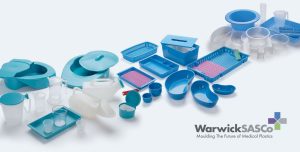Partnership could transform the lives of millions

THE lives of millions of people with chronic lung diseases could be transformed by an invention which came about through a partnership between a hospital and a hi-tech defence firm.
Professor Monica Spiteri, of the directorate of respiratory medicine at the University Hospital of North Staffordshire NHS Trust, came up with the idea of testing saliva to monitor the everyday condition of patients with serious lung conditions, especially during flare-ups of disease.
The prototype ‘respiratory biosensor’ has been produced after the hospital teamed up with Malvern-based QinetiQ which provides technical advice to customers in the aerospace, defence and security markets.
The new technology works by measuring bio-markers – proteins whose concentration reflects the severity or presence of disease – in saliva.
The biosensor is now being fine-tuned so it is ready to begin clinical trials at the Stoke hospital this month.
In due course, the technology is expected to be further miniaturised to produce a handheld device to enable patients to monitor their own condition in their home.
Does your company have a corporate profile on TheBusinessDesk.com? Tell customers what you’re all about and link through to your own website. To find out more, call Lee-J Walker on 07807 083544 or email him here leej.walker@TheBusinessDesk.com
Professor Spiteri said: “The arrival of our prototype respiratory biosensor is a landmark step in the development of future near-patient technology that could make a big difference for monitoring patients with lung disease.
“Saliva analysis is currently used in other fields, such as testing for alcohol and drug levels but we are among the first teams in the world to develop it to monitor the progression of chronic obstructive pulmonary disease and other lung conditions.
“Using saliva is far more convenient and less invasive for the patient than having to give a blood sample.”
MidTECH, the West Midlands NHS innovations hub, brought the hospital trust and QinetiQ together in a collaborative arrangement as well as organising the patent protection for Professor Spiteri’s ideas.
The innovation follows an investment by the advanced sensors innovation programme which is a joint venture between Advantage West Midlands and QinetiQ.
AWM’s director of innovation Rebecca Garrod-Waters added: “The ASIP has applied QinetiQ’s renowned sensors expertise to create new products.
“The respiratory biosensor is a great example of where these capabilities are being used to address a major health issue affecting the lives of many sufferers and in doing so creating a new market for high-tech manufacturing.”








